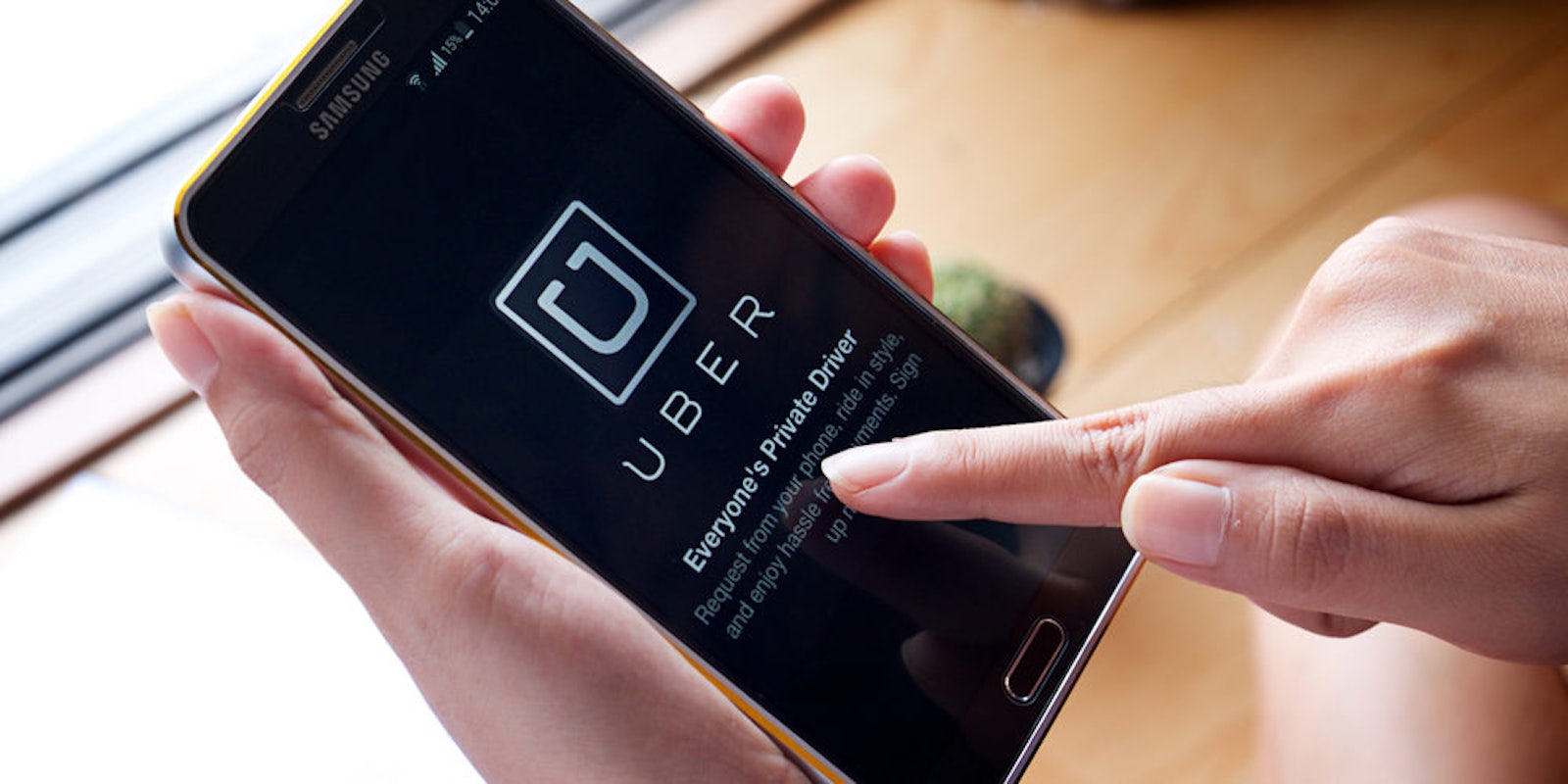Uber has reportedly been using a fake app to evade authorities in cities where its service is either resisted by law enforcement or outright banned.
The ride-hailing company for years tagged police officers and fed them a different version of its app so they would not catch drivers using the service, according to a report from the New York Times.
In 2014, Erich England, a code enforcement inspector from Portland, Oregon, caught Uber using what it calls “Greyball” on camera. England was trying to chase down a driver as part of an operation against Uber, which was using its service in Portland without the city’s permission. To avoid police intervention, Uber showed him cars that didn’t exist. When England requested a car, it quickly canceled. Uber is even said to have called drivers who accidentally picked up an officer, and told them to cancel the ride.
Uber used several different techniques to determine England and others were part of law enforcement. One of those methods involves making a digital fence around authorities’ offices, like police stations. From there, Uber could see who was opening their app and mark them. Other techniques include looking at people’s credit card info to see if their accounts were linked to a police credit union.
“We’re very concerned to hear this practice continued at least into 2015 and affected other cities,” Dyland Rivera, a spokesperson for the Portland Bureau of Transportation, told the New York Times.
The Greyball program is still in use today, and is part of a larger program called VTOS, or “violation of terms and services,” which Uber created to filter out people it thought were attacking its service improperly. It appears to have gotten out of hand, and Uber began adding the police to that list.
The Blackbriar-like program was described to the New York Times by four anonymous current and former Uber employees, who provided documentation. They claim the tool has been distributed to general managers in more than a dozen countries across five continents.
Uber provided the following comment to Business Insider:
“This program denies ride requests to fraudulent users who are violating our terms of service — whether that’s people aiming to physically harm drivers, competitors looking to disrupt our operations, or opponents who collude with officials on secret ‘stings’ meant to entrap drivers.”
The Times report couldn’t come at a worse time for Uber. The ride-hailing giant has been pushing through scandal after scandal with #DeleteUber, a sexual harassment accusation, a lawsuit filed by Google, and a video showing the CEO of Uber demeaning one of his drivers.
We have reached out to Uber for comment on Greyball.


